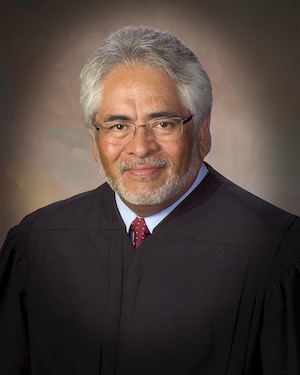Advanced Video Techs. LLC v. HTC Corp., Nos. 2016-2309, 2016-2310, 2016-2311, 2018 U.S. App. LEXIS 682 (Fed. Cir. Jan. 11, 2018) (Before Newman, O’Malley, and Reyna, J.) (Opinion for the court, Reyna, J.) (Concurring opinion, O’Malley, J.) (Dissenting opinion, Newman, J.)
U.S. Patent No. 5,781,788 (the ?788 Patent) lists three co-inventors: Woo, Li, and Hsiun. The invention was created while the co-inventors were employed by Infochips Systems. inventors Woo and Li assigned their co-ownership interests to Advanced Video, Infochip’s successor. The sole issue on appeal was whether Hsiun transferred her co-ownership interest to Advanced Video under her Employment Agreement with Infochips.
In 2011, Advanced Video filed suit against HTC for patent infringement in the Southern District of New York. The district court dismissed the suit for lack of standing, finding that Advanced Video did not have an ownership interest in the patent. In 2015, the Delaware Court of Chancery appointed a receiver to transfer any patent rights held by Advanced Video’s predecessor to Advanced Video. After the transfer, Advanced Video filed three new patent infringement suits, arguing that it acquired Ms. Hsiun’s ownership rights pursuant to three provisions in her Employment Agreement with Infochips: a will assign provision, a trust provision, and a quitclaim provision. The district again court dismissed the suits for lack of standing, finding that Ms. Hsuin was not a party, had not consented to the suits, and never transferred her ownership interest to Advanced Video. The appeal followed.
The Federal Circuit affirmed. Taken together, neither the will assign, the trust, nor the quitclaim provisions of the Employment Agreement operated to assign Ms. Hsiun’s ownership rights in the ?788 Patent to Advanced Video. First, language in the Employment Agreement that Ms. Hsuin “will assign to the Company” all her right, title, and interest in any inventions developed as an employee merely indicated a promise to assign her ownership rights in the future, not a present assignment of her rights. Second, language in the Agreement that Ms. Hsiun “will hold in trust” her ownership interests in inventions created as an employee “for the sole right and benefit of the Company” did not create an immediate trust under California law and, even if it had, Ms. Hsiun never transferred her ownership rights out of the trust to Advanced Video.
Advanced Video could have sought to enforce Ms. Hsiun’s obligation to transfer her rights under the trust by bringing an action against her, but it never did so. Additionally, as a non-consenting co-owner, Ms. Hsiun could not be involuntarily joined to the case under Federal Rule of Civil Procedure 19. Finally, language in the Agreement that Ms. Hsuin “hereby waive[s] and quitclaim[s] to the Company any and all claims” to patents assigned to the company was inoperable, because (again) Ms. Hsuin had never assigned her rights. As a result, Advanced Video never had full ownership of the ?788 Patent and lacked standing to maintain the suits.
Judge O’Malley concurred that the suit must be dismissed because Advanced Video did not have full ownership of the ?788 Patent and because Ms. Hsiun was not a party to the suit. However, Judge O’Malley argued that Ms. Hsiun could be involuntarily joined to the suit under Rule 19. The Rule provides that “[a] person who is subject to service of process and whose joinder will not deprive the court of subject-matter jurisdiction must be joined as a party if[] in that person’s absence, the Court cannot accord complete relief among the parties.” Judge O’Malley concluded that this should apply to all cases, including patent cases. The Federal Circuit has no governing precedent and has never explained the basis for its exception, that a non-consenting co-owner of a patent cannot be joined. The Court should either clarify the basis for its rule against involuntary joinder of co-owners in patent infringement suits or hold that Rule 19 applies in patent cases.
Judge Newman dissented, arguing that Advanced Video had full ownership of the ?788 Patent and standing to sue for infringement. She found that the Employment Agreement, including the will assign, trust and quitclaim provisions, demonstrated a mutual intent and understanding that any inventions created during Ms. Hsiun’s employment at Infochips would be owned by Infochips. Based on the terms of the Agreement, a separate assignment document was not necessary to assign ownership of the invention to Infochips. Judge Newman noted that Ms. Hsiun has never asserted any ownership interest in the ?788 Patent and had not objected to the infringement suits.
A patent infringement suit cannot be maintained unless all co-owners of the patent are parties to the suit. A non-consenting patent owner cannot be involuntarily joined to an infringement suit under Federal Rule of Civil Procedure 19. An employment agreement whereby an employee ‘will assign’ rights or holds them ‘in trust’ for a future assignment, or waives rights if they were assigned, did not transfer ownership without an actual assignment.

![[IPWatchdog Logo]](https://ipwatchdog.com/wp-content/themes/IPWatchdog%20-%202023/assets/images/temp/logo-small@2x.png)



![[Advertisement]](https://ipwatchdog.com/wp-content/uploads/2024/04/Patent-Litigation-Masters-2024-sidebar-early-bird-ends-Apr-21-last-chance-700x500-1.jpg)

![[Advertisement]](https://ipwatchdog.com/wp-content/uploads/2021/12/WEBINAR-336-x-280-px.png)
![[Advertisement]](https://ipwatchdog.com/wp-content/uploads/2021/12/2021-Patent-Practice-on-Demand-recorded-Feb-2021-336-x-280.jpg)
![[Advertisement]](https://ipwatchdog.com/wp-content/uploads/2021/12/Ad-4-The-Invent-Patent-System™.png)






Join the Discussion
No comments yet.